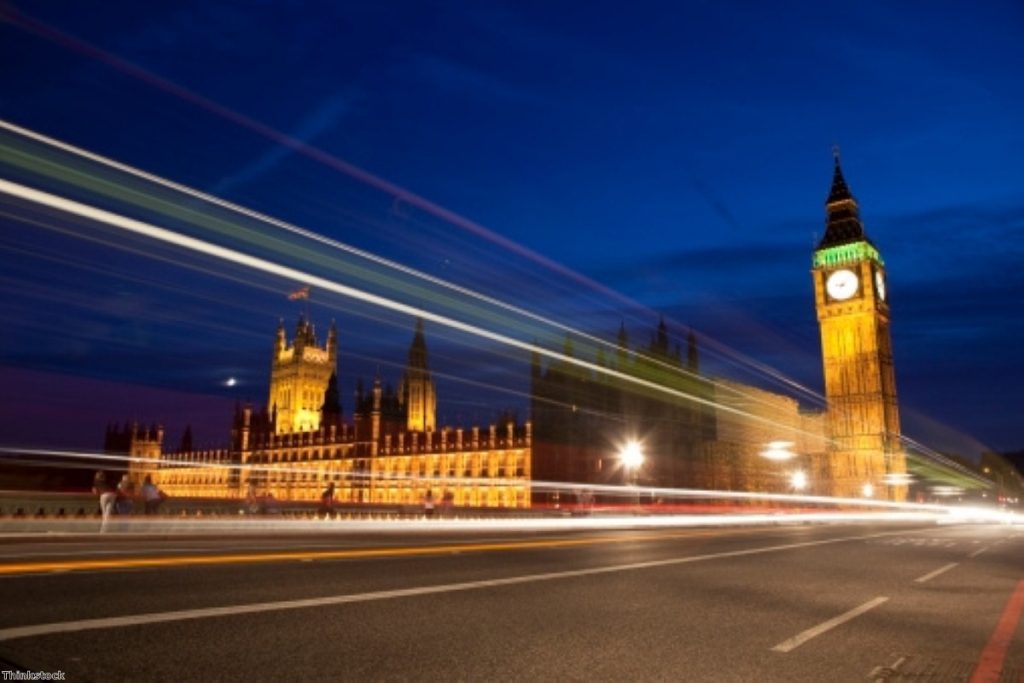Threats and defiance: How the Lords rebellion played out
It was a night which may mark the beginning of the end of the coalition. As the dust settled, Liberal Democrats and Conservatives were issuing explicit threats to each other on television, the prime minister was shouting at his own MPs in public and Tory rebels were being ordered to go home to avoid their furious whips.
The heightened emotional pitch of the evening was created over the weekend, when Richard Reeves, Clegg's former strategy director, gave an interview in which he said the Liberal Democrats would not support the Tories plans for a boundary review unless they got Lords reform in return.
There has been much talk of high principle recently, but the bare bones of the conflict come down to the fact that Conservatives need the extra seats the boundary review offers and the Lib Dems want the balance of power a proportionally elected second Chamber will give them.
"I don't think they have helped themselves with bloodcurdling threats about withdrawing support for other constitutional reforms of the House of Commons," Angie Bray, who resigned as a ministerial aide yesterday, said. "So I do think the Liberal Democrats need to think very carefully about how they want the relationship to prosper."


This morning deputy Lib Dem leader Simon Hughes hit back. "We are clear you can't have a deal broken by one side without consequences," he told BBC Radio 4. "There would be consequences if they broke it. We honoured the deal. It is up to them how they do it."
As the day ran its course, Conor Burns, parliamentary private secretary to the secretary of state for Northern Ireland, also resigned. But the main focal point was the office of Jesse Norman, a widely-respected Tory intellectual tipped for a frontbench role. He effectively organised a shadow whipping operation from his desk, including a smart little email in which he told potential waverers that rebelling would actually help David Cameron.
Downing Street had hoped that by dropping the timetable for the debate, they could buy off rebels. Their hopes were dashed. A remarkable 91 Tories voted against the bill. A further 19 MPs abstained. That left just 80 Tory backbenchers supporting the government. Some of them – such as Nadhim Zahawi and Penny Mordaunt – were widely expected to earn a place in government. Yesterday, they effectively sacrificed their long-term careers. That, beyond the simple numbers, is a testament to how little control Cameron now wields over his party.
That thought may have been playing on his mind when the prime minister confronted Norman outside the division lobbies, just as the scale of the rebellion against his three-line whip became clear. Labour MP Karl Turner tweeted: "Heard him say behaviour not honourable. V animated and clearly aggressive. PM was clearly unhappy." Cameron was reported to have repeatedly jabbed his finger at Norman and raised his voice, despite being surrounded by several of his MPs.
Not long after that, Norman retreated to Strangers Bar in the Commons – already famous due to the Eric Joyce incident earlier in the year. As he drank with a friend, four Tory whips – Stephen Crabb, Philip Dunne, Bill Wiggin and James Duddridge – approached him. Here reports vary. Some say they were even more aggressive than the prime minister. Others say they merely asked Norman for a polite word, whereupon they advised him to leave the parliamentary estate. John Randall, the deputy chief whip, was on the warpath. Either way, Norman made his exit.
In a counter-intuitive way, the reports of finger jabbing, shouting and forced exits might actually help the coalition. They are a sign to Nick Clegg that Cameron really did do all he could to control his party. The real danger is to the prime minister, who simply cannot get his MPs to fall in line.












